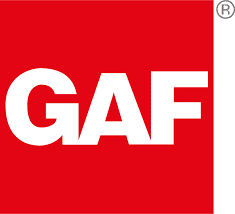Colorado is a beautiful state, with breathtaking vistas and a comfortable temperature climate in the summer. Of course, Colorado is also known for its relatively harsh winters, and periodic hailstorms. Because of these and other factors, it’s not a question of if homeowners in Colorado need to replace their roof; it’s only a question of when.
Generally speaking, you may be looking at a roof replacement once every 7-10 years. However, there is a lot of variance in the cost of a new roof. Here are some key factors that play into that final price tag you may be looking at after your new roofing project is finished.
Average New Roof Cost in Colorado
We’ll cut to the chase. The reality is that a new roof in one part of Colorado may cost thousands of dollars more (or less) than a new roof in another part of the state. When looking at Denver metro and the surrounding area, a 2,000-square foot roof may cost anywhere between $9,000-$12,000+. Of course, this is just an estimate. The cost may run higher or lower based on some of the factors mentioned below. Every roof is different.
Roofing Material Selection
The choice of roofing material is a critical determinant of your roofing project’s cost. In Colorado, homeowners and commercial property owners typically have several options to consider, each with its own set of advantages and disadvantages in terms of cost, durability, and suitability for the local climate. Here are a few examples:
- Asphalt shingles: These are the most common and budget-friendly roofing material in Colorado. They offer good durability and a wide range of style options. Asphalt shingles are a cost-effective choice for many homeowners.
- Metal roofing: While metal roofing may have a higher upfront cost, it often proves to be a wise investment in the long run. Metal roofs are exceptionally durable, energy-efficient, and can withstand the extreme weather conditions that Colorado experiences.
- Tile roofing: Tile roofs are known for their aesthetic appeal and longevity. However, they are heavier and more complex to install, which can increase both material and labor costs.
- Composite materials: Composite roofing materials, such as synthetic shingles or wood shakes, offer a blend of affordability and durability. They can mimic the look of traditional roofing materials while being more budget-friendly.
Selecting the right roofing material for your home or business involves considering your budget, and aesthetic preferences. While asphalt shingles are a popular choice, it’s essential to evaluate all options to make an informed decision. We believe selecting the right material is so important, especially with the specific climate conditions in Colorado, we wrote this article on the best roofing material for hail in Colorado.
Roof Size and Complexity
The size and complexity of your roof are significant cost factors. Larger roofs require more materials and labor, leading to higher project costs. However, it’s not just about size; the design and complexity of your roof also play a crucial role.
One example of complexity would be your roof pitch. Steeper roofs require more labor and safety precautions, adding to the overall cost. Another example would be angles and architectural features. The presence of angles, valleys, dormers, and other architectural elements can increase the complexity of the project, necessitating more time and labor.
When calculating your budget, consider not only the square footage of your roof but also its design. A more intricate roof will likely come with a higher price tag.
Roofing Contractor
Choosing the right roofing contractor is one of the most critical decisions you’ll make during your roofing project. While it can be tempting to go with the lowest bidder, the quality of workmanship and materials can significantly impact the project’s long-term success. Here are a few factors to consider when selecting a roofing contractor:
- Reputation and experience: Look for contractors with a solid reputation and extensive experience in roofing projects in Colorado. Check online reviews and ask for references.
- Licensing and insurance: Ensure that your chosen contractor is licensed, insured, and compliant with all local regulations. This protects both you and the workers.
- Written estimates: Obtain detailed, written estimates from multiple contractors. Compare the scope of work, materials used, and labor costs to make an informed choice.
- Warranty: Inquire about warranties on materials and workmanship. A reputable contractor should provide warranty coverage to safeguard your investment.
While it might be tempting to cut costs by hiring a less experienced or uninsured contractor, doing so can lead to costly problems down the road. Investing in a reliable roofing contractor, like Axe Roofing, can save you money and stress in the long term.
Climate Considerations
Colorado’s diverse climate—from heavy snowfall in the mountains to hailstorms on the plains—requires homeowners and commercial building owners to consider specific weather-related challenges when budgeting for a new roof. This includes the following:
- Snow load: In mountainous regions, heavy snowfall is a common occurrence. Your roof must be designed to handle the weight of accumulated snow without collapsing.
- Hail resistance: Colorado experiences frequent hailstorms, which can cause significant damage to roofs. Choosing hail-resistant roofing materials can prevent costly repairs.
- Temperature fluctuations: Colorado’s temperature fluctuations can lead to the expansion and contraction of roofing materials. High-quality materials that can withstand these fluctuations are essential.
When selecting roofing materials and features, prioritize those that are designed to withstand Colorado’s climate conditions. While they may come with a higher upfront cost, they can save you money on repairs and replacements in the long run.
Warranty and Maintenance
Warranty coverage and regular maintenance are often overlooked aspects of roofing projects, yet they play a vital role in the longevity and cost-effectiveness of your new roof.
- Manufacturer warranties: Roofing materials often come with warranties from the manufacturer. Ensure that you understand the terms and coverage of these warranties.
- Workmanship warranties: Reputable roofing contractors typically offer workmanship warranties, guaranteeing the quality of their installation. Ask your contractor about the availability of such warranties.
- Routine maintenance: Regular roof maintenance, including inspections and minor repairs, can extend the life of your roof and prevent costly issues.
While investing in quality materials and workmanship may come with a higher initial cost, these choices provide peace of mind knowing that your roof is protected. Proper maintenance is also essential for ensuring the longevity of your investment.
Homeowner’s Insurance
Homeowner’s insurance can have a significant impact on the cost of a new roof in Colorado. Depending on your policy, it may cover some or all of the expenses related to roof damage caused by covered perils such as hail, windstorms, or fallen trees.
- Policy coverage: Review your homeowner’s insurance policy to understand what types of roof damage are covered and the extent of coverage.
- Deductible: Most homeowner’s insurance policies have a deductible, which is the amount you must pay out of pocket before the insurance company covers the rest of the expenses. Deductibles can vary, so be sure to know your policy’s deductible amount. We explain this a little more in the next section.
- Claims process: If your roof sustains damage covered by your homeowner’s insurance, you will need to file a claim. Follow the insurer’s procedures to ensure a smooth claims process.
- Insurance rates: Keep in mind that filing a claim can affect your homeowner’s insurance rates. It’s essential to weigh the potential increase in premiums against the benefits of coverage.
Before embarking on your roofing project, consult with your homeowner’s insurance provider to understand your coverage, deductible, and the impact of filing a claim. This knowledge will help you make informed decisions regarding repairs or replacement.
Deductible
The deductible is an essential aspect of homeowner’s insurance that directly affects the cost of your roofing project. It is the portion of the claim you are responsible for paying out of pocket before your insurance coverage kicks in. Deductibles can vary depending on your policy and insurer.
- Deductible amount: Review your homeowner’s insurance policy to determine the deductible amount. This can range from a few hundred dollars to a percentage of your home’s insured value.
- Impact on project cost: When your roof sustains damage that is covered by your homeowner’s insurance, you will need to pay the deductible before the insurance company covers the remaining costs. Be prepared to cover this expense when budgeting for your project.
- Considerations: Before filing an insurance claim for roof damage, consider the cost of your deductible and the potential increase in insurance premiums. In some cases, it may be more cost-effective to cover the repair or replacement expenses without involving insurance.
Understanding your deductible and its impact on your roofing project’s cost is crucial for proper budgeting and decision-making. Consult with your insurance provider to clarify any questions you may have about your deductible.
Final Thoughts
By carefully considering these factors and finding the right balance between cost and quality, homeowners and commercial building owners can ensure a successful roofing project that offers long-term value and peace of mind. Remember that investing in a durable and weather-resistant roof is not just a financial decision but also an investment in the safety and longevity of your home or business.
This guide is designed to empower Colorado homeowners and commercial building owners with the knowledge they need to make informed decisions about their roofing projects. By taking the time to research, plan, and budget effectively, you can embark on your roofing project with confidence, knowing that you’ve considered all the critical factors that influence the cost of a new roof in Colorado.
Of course, price is only one consideration when deciding whether to replace your roof. As mentioned earlier, you’ll also want to hire the best roofing contractors available so that the job will get done right the first time. If you have any questions about the cost of a new roof, or other roof-related issues, reach out to the Axe Roofing team today.
Related Articles:














